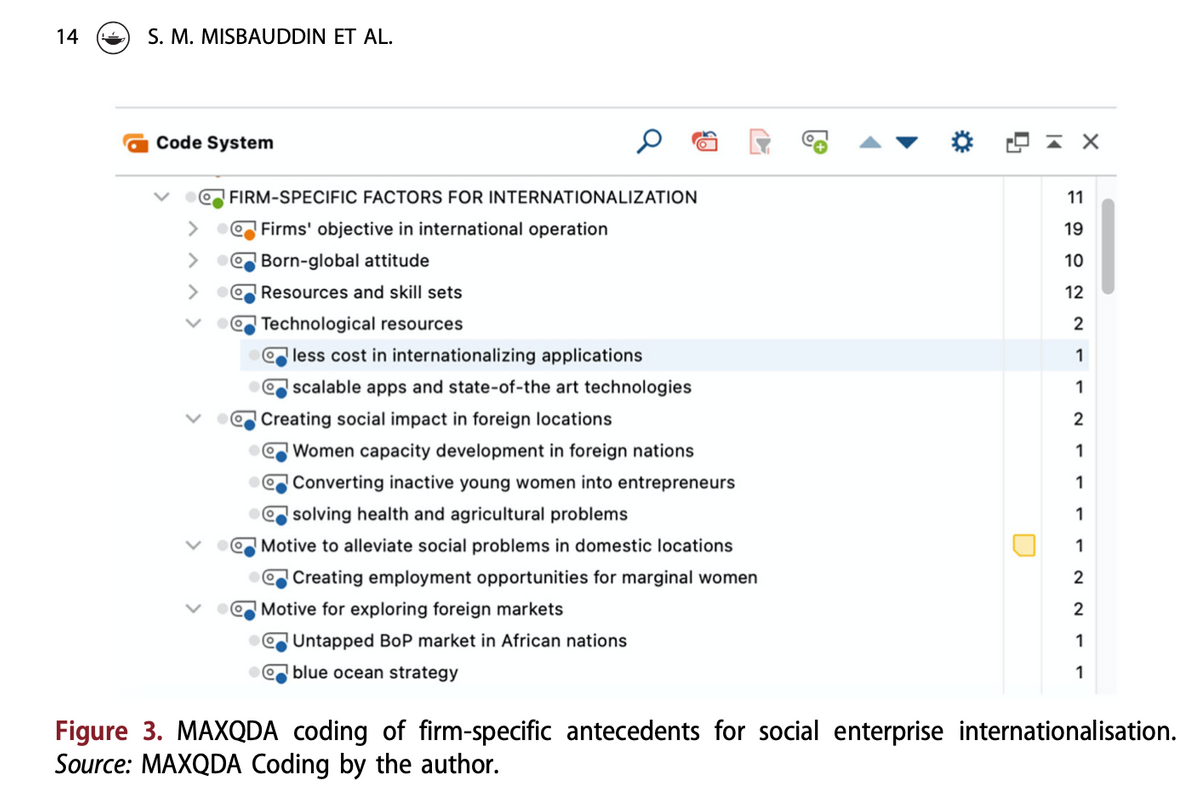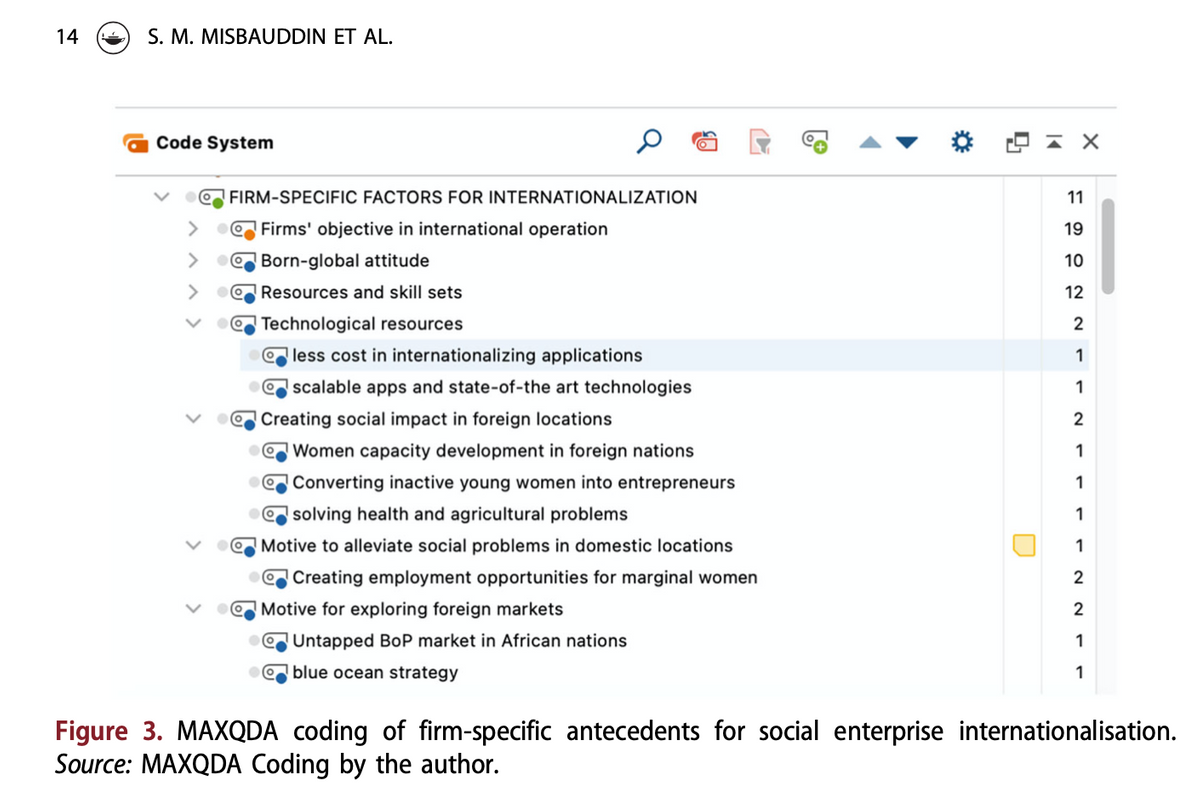
Analysing the Factors Influencing the Internationalisation of Social Entrepreneurship: A Study of Internationalised Social Businesses from Bangladesh
https://www.tandfonline.com/doi/full/10.1080/19420676.2022.2143868?src=
Abstract
Social businesses (SB) have significant relevance as they create social impact through revenue-generating business models. The current study is intended to contribute to social entrepreneurship literature by identifying the factors that can influence social business in the internationalisation process from a developing country context, Bangladesh. The research utilised the qualitative approach to extract the required information from the selected ten (10) business cases. MAXQDA software was used to generate the required codes and categories. From the findings, three broad categories of factors have been identified that influence internationalisation: firm-centric, entrepreneur-specific, and context-specific factors related to home and host country environments. The study determined that the firm’s capabilities, such as designing technological apps and platforms to provide essential health, education, and medical services, contribute to internationalisation. In addition, the research identified the adaptation of the business model as one of the determinants of SB internationalisation. Some adaptation practices include maintaining hybrid logic, adopting social franchising model, value delivery, and value capture processes through partnership with for-profit organisations in host countries. The findings of this study are expected to be useful for academicians and also for the social entrepreneurs willing to take their enterprises to the international market level.
Research Images


